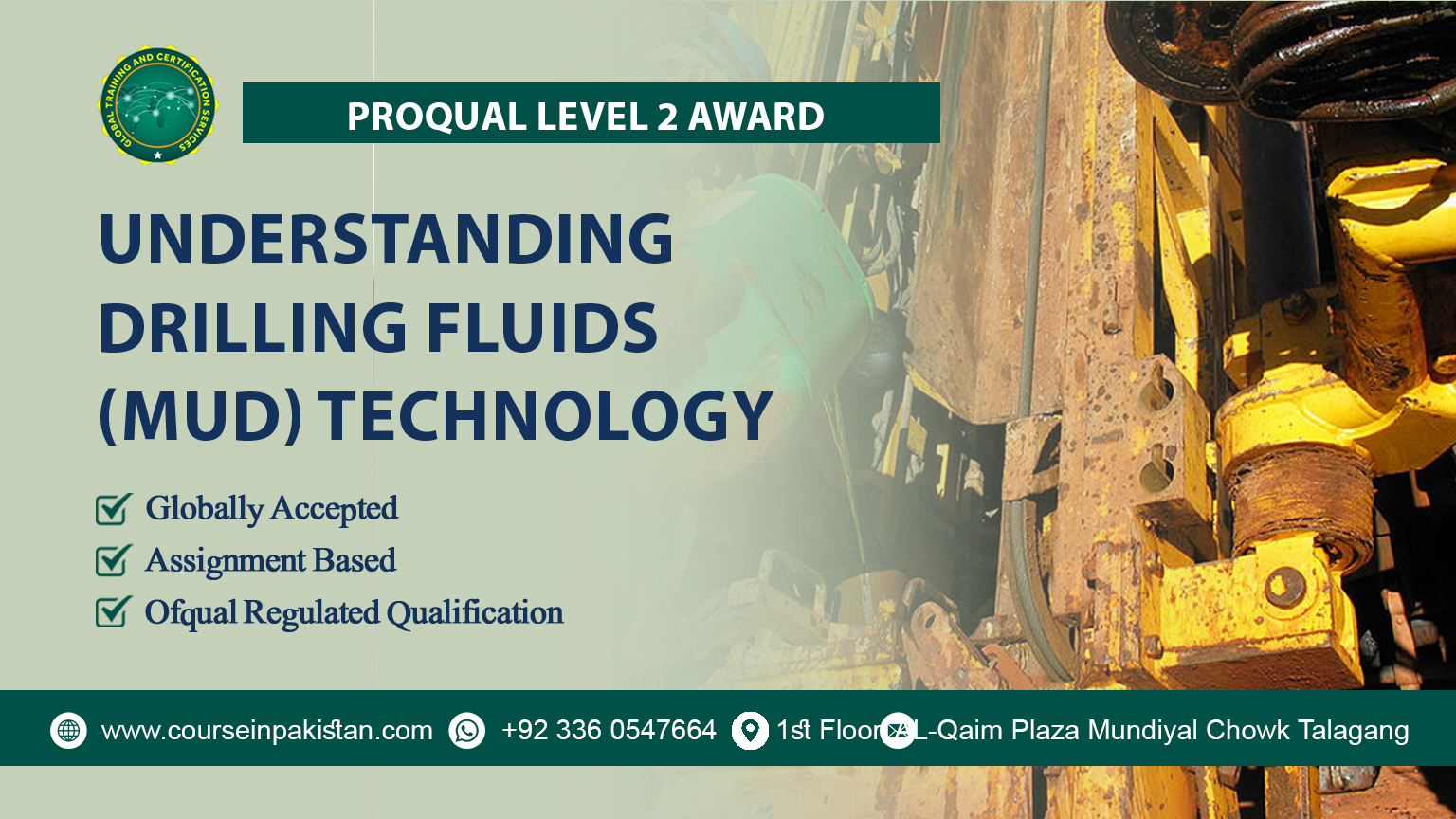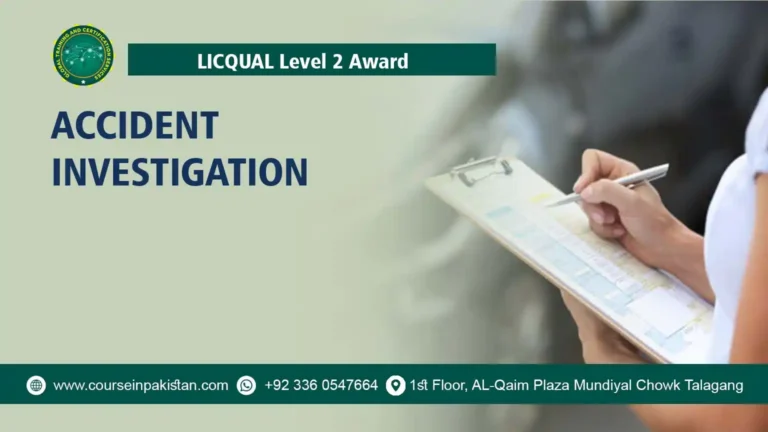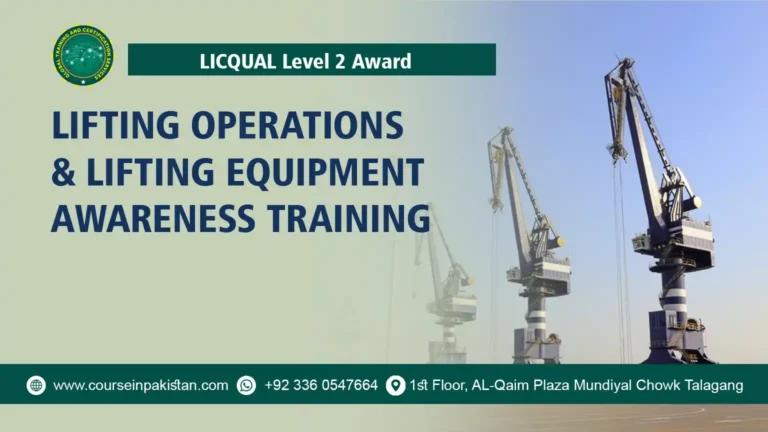
The ProQual Level 2 Award in Understanding Drilling Fluids (Mud) Technology is an essential qualification for individuals working in the oil and gas industry, specifically in drilling operations. Drilling fluids, commonly known as drilling mud, are crucial components in the drilling process, playing a vital role in the efficient and safe drilling of wells. This qualification is designed to provide learners with foundational knowledge about the types, functions, and applications of drilling fluids and their significance in the oil and gas sector.
In this blog post, we will explore the details of this qualification, including course content, benefits, learning outcomes, and much more.
The ProQual Level 2 Award in Understanding Drilling Fluids (Mud) Technology introduces learners to the fundamental principles of drilling fluids, their composition, properties, and applications in the drilling process. Drilling fluids are used to lubricate the drill bit, carry rock cuttings to the surface, maintain pressure control in the wellbore, and provide cooling to the drilling equipment. Proper understanding and management of drilling fluids are critical to ensuring safe, efficient, and cost-effective drilling operations.
This qualification provides a basic understanding of the technology behind drilling fluids and how they impact the overall drilling process, making it ideal for those entering or working in the oil and gas sector.
Course Overview
The ProQual Level 2 Award in Understanding Drilling Fluids (Mud) Technology is designed to provide learners with a comprehensive overview of drilling fluids and their role in the drilling process. Key topics covered in the course include:
- Introduction to Drilling Fluids: An overview of the role of drilling fluids in the drilling process and their significance in oil and gas operations.
- Types of Drilling Fluids: A detailed exploration of the different types of drilling fluids, such as water-based mud (WBM), oil-based mud (OBM), and synthetic-based mud (SBM), including their characteristics, uses, and benefits.
- Properties of Drilling Fluids: Understanding the physical and chemical properties of drilling fluids, such as viscosity, density, and filtration, and how these properties affect their performance during drilling.
- Functions of Drilling Fluids: Exploring the multiple functions of drilling fluids, including cooling and lubricating the drill bit, carrying cuttings to the surface, controlling pressure, and stabilizing the wellbore.
- Maintenance and Monitoring: The importance of maintaining and monitoring drilling fluid properties to ensure optimal performance during drilling operations.
By the end of the course, learners will gain the knowledge required to understand and work effectively with drilling fluids in various drilling environments.
Course Benefits
- Industry-Relevant Knowledge: This qualification provides a strong foundation in drilling fluid technology, which is essential for anyone working in drilling operations, whether in exploration, development, or production.
- Increased Career Opportunities: Gaining expertise in drilling fluids can open up career opportunities in various roles such as drilling engineer, drilling technician, or field operator. It enhances your understanding of a critical component of the drilling process.
- Improved Operational Efficiency: A solid understanding of drilling fluids helps ensure the optimal performance of drilling operations, resulting in better wellbore stability, improved drilling efficiency, and reduced risks associated with well control.
- Enhanced Safety Awareness: Learning about the properties and functions of drilling fluids ensures that individuals understand how to mitigate risks and maintain safe drilling operations. Proper fluid management can prevent issues like wellbore instability or kick incidents.
- Short Duration and Flexibility: The course is designed to be completed within a short time, with flexible learning options available, making it ideal for individuals looking to enhance their knowledge without a long-term commitment.
Course Learning Outcomes
Upon successful completion of the ProQual Level 2 Award in Understanding Drilling Fluids (Mud) Technology, learners will be able to:
- Understand the importance of drilling fluids in the drilling process and their role in the safe and efficient completion of drilling operations.
- Identify and describe the different types of drilling fluids, including water-based mud (WBM), oil-based mud (OBM), and synthetic-based mud (SBM).
- Understand the physical and chemical properties of drilling fluids, such as viscosity, density, and filtration, and their impact on drilling performance.
- Explain the various functions of drilling fluids, including lubricating the drill bit, carrying rock cuttings, controlling wellbore pressure, and stabilizing the well.
- Recognize the importance of monitoring and maintaining drilling fluid properties to ensure the success of drilling operations.
- Understand the environmental considerations associated with different types of drilling fluids, particularly in terms of waste disposal and environmental impact.
Study Units
The ProQual Level 2 Award in Understanding Drilling Fluids (Mud) Technology typically includes the following study units:
Mandatory units
- Understanding Drilling Fluids (Mud) Technology
Who is This Course For?
The ProQual Level 2 Award in Understanding Drilling Fluids (Mud) Technology is ideal for individuals working in or aspiring to work in the oil and gas industry, particularly those in drilling operations. The course is suitable for:
- Drilling Technicians and Engineers: Professionals involved in drilling operations who need a fundamental understanding of drilling fluid technology and its applications.
- Field Operators and Crew Members: Personnel working on drilling rigs or at drilling sites who need to understand the importance of drilling fluids in maintaining safe and efficient operations.
- New Entrants to the Industry: Individuals who are new to the oil and gas sector and want to gain essential knowledge about drilling fluids before pursuing more advanced qualifications or career opportunities.
- Health, Safety, and Environment (HSE) Professionals: HSE professionals working in the oil and gas sector who need to understand drilling fluid management to ensure safe operations and environmental compliance.
- Anyone Interested in the Oil and Gas Sector: Individuals looking to gain a foundational understanding of drilling fluids and their role in the drilling process.
Future Progression
Upon completing the ProQual Level 2 Award in Understanding Drilling Fluids (Mud) Technology, learners can further enhance their expertise by pursuing higher-level qualifications, such as:
- Level 3 Award in Advanced Drilling Fluids Technology: For those seeking to deepen their knowledge of drilling fluids, including more advanced techniques in fluid formulation and performance optimization.
- Specialized Drilling Certifications: Additional certifications in areas such as well control, mud logging, or advanced well operations will further expand career prospects.
- Career Advancement: With this foundational qualification, learners can progress to more senior roles in drilling operations, such as drilling engineer, mud engineer, or rig supervisor.
About This Course
The ProQual Level 2 Award in Understanding Drilling Fluids (Mud) Technology is a regulated qualification, ensuring it meets the standards required by the oil and gas industry. Accredited training providers deliver the course, ensuring that learners gain practical, industry-relevant knowledge that is valued in the workplace. The course is designed to be accessible for individuals with little to no prior experience in drilling fluids.
The ProQual Level 2 Award in Understanding Drilling Fluids (Mud) Technology provides vital knowledge for anyone working in the oil and gas industry, particularly in drilling operations. With a strong focus on the types, properties, and functions of drilling fluids, this qualification will help learners understand how these fluids contribute to safe and efficient drilling operations.





